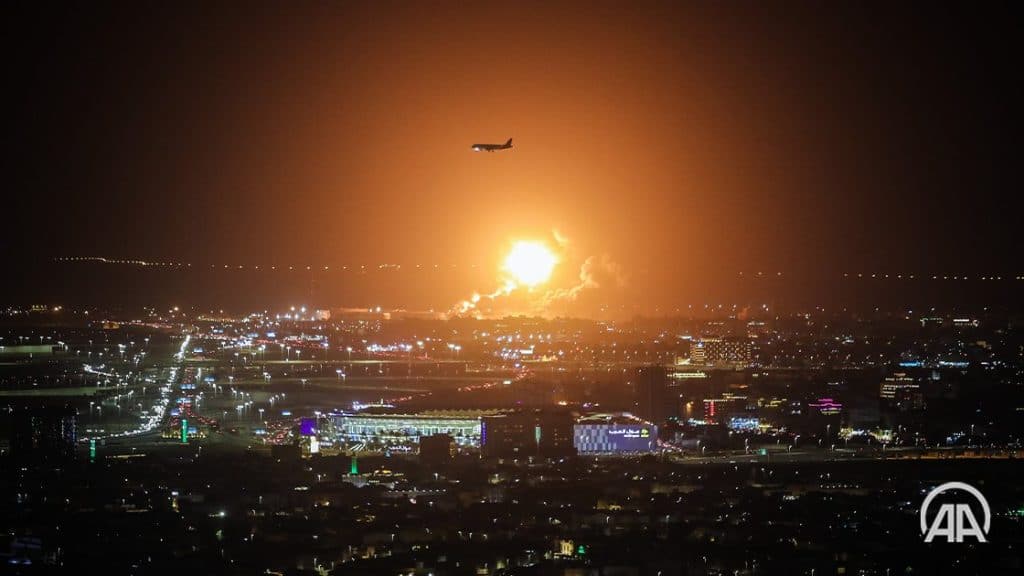
For a third week in a row, the Iran-backed Houthis attacked an Aramco oil storage facility in the port city of Jeddah and other energy facilities in the kingdom.
Footage of the attacks shared on social media show a section of the Aramco oil facility in Jeddah set ablaze. Others show the aftermath of a strike against a water facility in Najran.
Following the assaults, Houthi spokesperson Yahya Sare’e acknowledged the third “Siege Breaking” operation was launched against various targets inside Saudi Arabia using drones, ballistic and winged missiles.
“In response to the continuation of the unjust siege on our country and our people, and the inauguration of the eighth year of steadfastness the Yemeni armed forces carried out the third Siege Breaking operation with batches of ballistic & Winged missiles and drones,” Sare’e tweeted.
A statement by the official spokesperson of the Saudi-led coalition, Brigadier General Turki al-Malki, stated that the Aramco attack in Jeddah was likely conducted by the Houthis and noted the goal of the assault was to “undermine energy security” of the global economy.
“A fire erupted in (2) tanks in the oil facility; the fire was controlled, and no injuries or loss of life were recorded. This hostile escalation targets oil facilities, and aims to undermine energy security and the backbone of global economy. These hostile attacks had no impact or repercussions in any way, shape or form on public life in Jeddah City,” al-Malki stated.
Friday’s strikes are a part of a broad and extensive operation primarily targeting Saudi oil facilities. Houthi statements have blamed Saudi Arabia’s blockade of Yemen, specifically the prohibition of fuel imports as the reason for launching operations against the kingdom. [See FDD’s Long War Journal: Houthis Renew Attacks Against Saudi Arabia.]
However, this is likely a superficial explanation of the reason behind the assaults. Iran stands to benefit from soaring oil prices, primarily caused by last month’s Russian invasion of Ukraine. And as the Houthi’s main backer, it’s plausible Iran instructed its proxy to step-up attacks against Saudi oil refineries in order to cripple production, thus maintaining global oil prices at a high level to use as leverage while it negotiates a renewed nuclear deal with the United States.
Iran has long been suspected of using its proxies as a cover to launch assaults against Saudi Arabia and the UAE.
The recurrent attacks against energy facilities over the years including those in recent weeks appears to be straining the Saudi’s ability to keep up with the production of oil. A recent statement published by the Saudi’s Foreign Ministry signaled that continued Houthi strikes against its oil refineries will limit the production of oil to the global market.
While the Aramco facility in Jeddah continues to burn late into the evening, Iran has sent a clear message to Saudi Arabia and the United States who orchestrated the attacks.
The United States, United Kingdom, Qatar and others have published statements condemning the Houthi’s assault on Friday.







